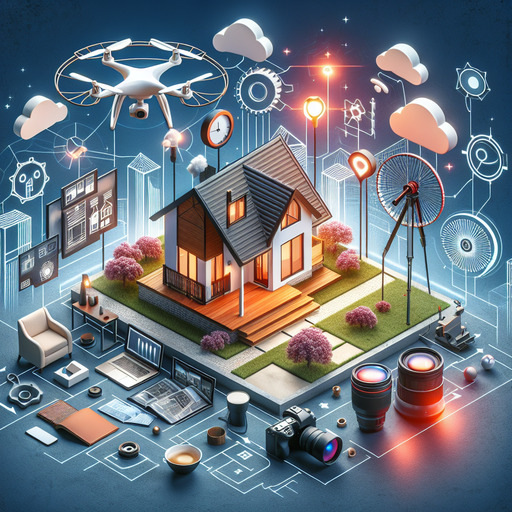
-
Table of Contents
- Mastering Real Estate Photography: Tips, Techniques, and Tools
- Understanding the Importance of Real Estate Photography
- Essential Real Estate Photography Tips
- 1. Mastering the Art of Lighting
- 2. Choosing the Right Equipment
- 3. Perfecting Composition and Angles
- Enhancing Photos with Real Estate Photography Editing
- Exploring Real Estate Drone Photography
- Real Estate Photography Pricing: What to Consider
- Conclusion: Elevate Your Real Estate Listings
- Questions and Answers
Mastering Real Estate Photography: Tips, Techniques, and Tools
In the competitive world of real estate, first impressions are everything. High-quality real estate photography can make or break a property listing, influencing potential buyers’ decisions before they even step foot inside. This guide will explore essential tips, techniques, and tools to elevate your real estate photography game, ensuring your listings stand out in a crowded market.
Understanding the Importance of Real Estate Photography
Real estate photography is more than just snapping pictures of a property. It’s about capturing the essence and potential of a space, enticing buyers to envision themselves living there. According to the National Association of Realtors, 87% of home buyers found photos to be the most useful feature of online listings. This statistic underscores the critical role photography plays in real estate marketing.
Essential Real Estate Photography Tips
1. Mastering the Art of Lighting
Lighting is the cornerstone of great photography. In real estate, it can highlight a property’s best features and create an inviting atmosphere.
- Natural Light: Shoot during the golden hours—early morning or late afternoon—to take advantage of soft, natural light.
- Artificial Light: Use additional lighting equipment to fill in shadows and ensure even lighting throughout the space.
2. Choosing the Right Equipment
Investing in quality real estate photography equipment can significantly impact the outcome of your photos.
- Camera: A DSLR or mirrorless camera with a wide-angle lens is ideal for capturing expansive interior shots.
- Tripod: A sturdy tripod ensures stability and allows for longer exposure times in low-light conditions.
3. Perfecting Composition and Angles
Composition is key to creating visually appealing real estate listing photos. Consider these strategies:
- Rule of Thirds: Align key elements along the grid lines to create balanced and engaging images.
- Height and Angles: Shoot from chest height to provide a natural perspective, and experiment with different angles to showcase unique features.
Enhancing Photos with Real Estate Photography Editing
Post-processing is an essential step in real estate photography services. Editing can enhance colors, correct exposure, and remove unwanted elements.
- Software: Use tools like Adobe Lightroom or Photoshop for professional-grade editing.
- Techniques: Adjust brightness, contrast, and saturation to make images pop while maintaining a natural look.
Exploring Real Estate Drone Photography
Drone photography offers a unique perspective, capturing aerial views that highlight a property’s surroundings and layout.
- Regulations: Ensure compliance with local drone regulations and obtain necessary permits.
- Applications: Use drones to showcase large properties, highlight nearby amenities, and provide a comprehensive view of the area.
Real Estate Photography Pricing: What to Consider
Pricing your real estate photography services can be challenging. Consider these factors:
- Market Rates: Research local competitors to understand standard pricing.
- Service Packages: Offer tiered packages that include different levels of service, such as basic photography, drone shots, and virtual tours.
Conclusion: Elevate Your Real Estate Listings
By mastering the art of real estate photography, you can significantly enhance your property listings, attracting more potential buyers and closing deals faster. From understanding lighting and composition to leveraging advanced tools like drones, each element plays a crucial role in creating compelling images.
For more insights into real estate photography, check out this Wikipedia page on real estate photography.
Questions and Answers
Q1: What is the best time of day for real estate photography?
A1: The best time is during the golden hours—early morning or late afternoon—when natural light is soft and flattering.
Q2: How can I improve my real estate photography skills?
A2: Practice regularly, study professional photos for inspiration, and consider taking courses on photography techniques and editing.
Q3: Is drone photography necessary for all real estate listings?
A3: While not necessary for all listings, drone photography is beneficial for large properties or those with unique surroundings that can be highlighted from an aerial perspective.
If you’re interested in learning more about our real estate photography services or have any questions, please contact us.